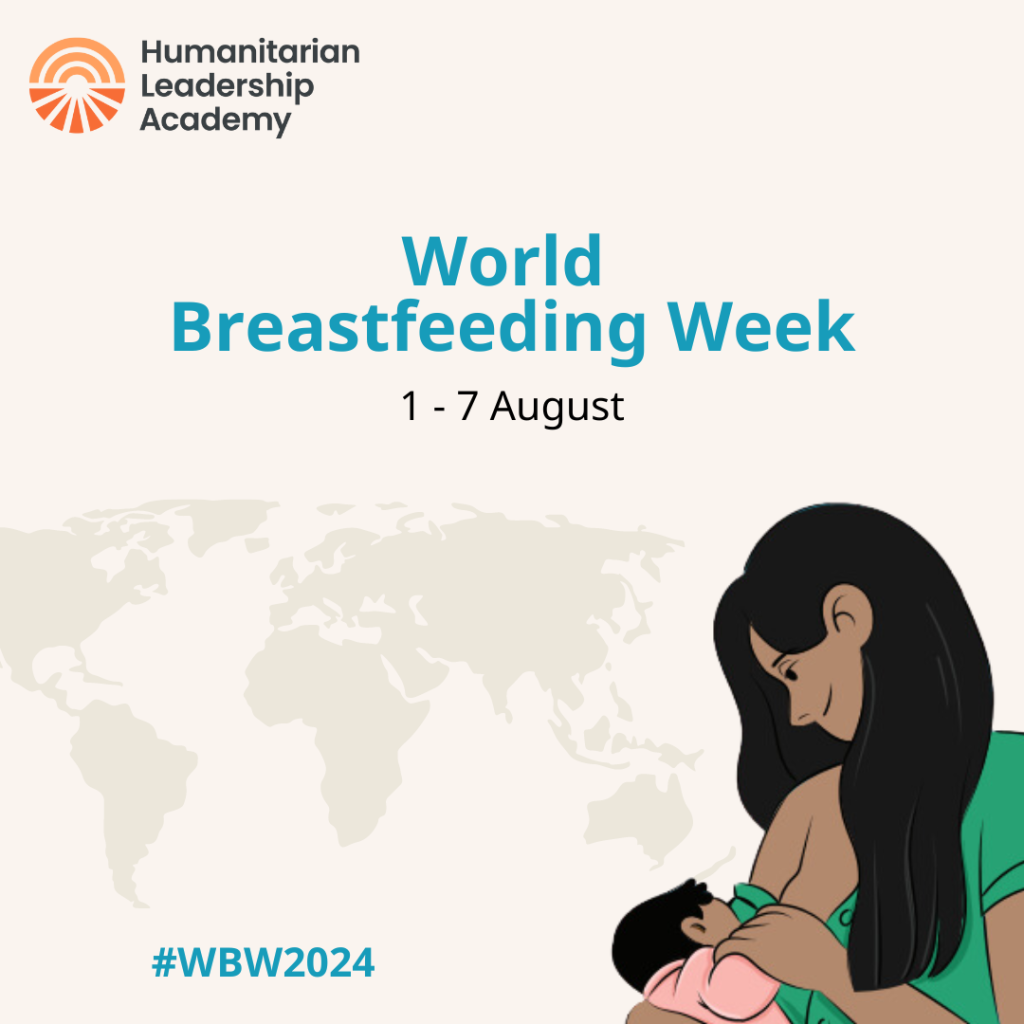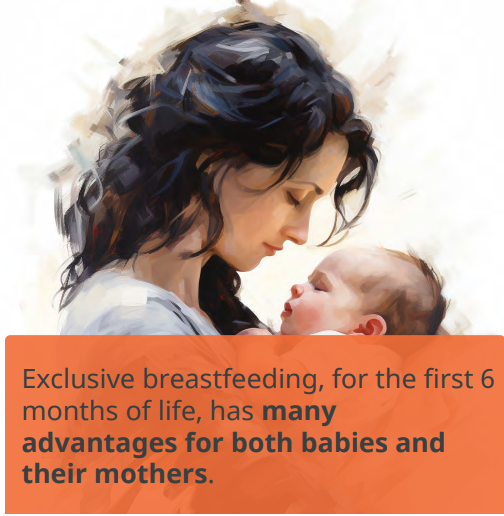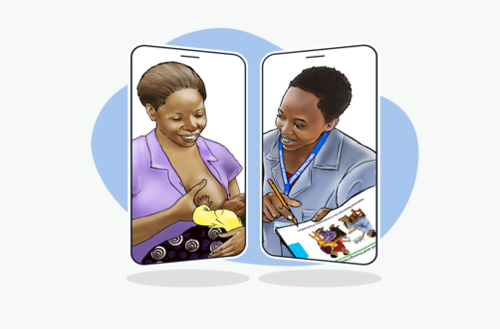1st August 2024

This week is World Breastfeeding Week, a global initiative supported by WHO and UNICEF, marked between 1-7 August every year.
In 2024, the theme is ‘Closing the gap: Breastfeeding support for all’. The aim is to celebrate breastfeeding mums in all their diversity; while showcasing the ways families, societies, communities and health workers can support every breastfeeding mother around the world.
Breastfeeding has many advantages for the health and survival for both babies and their mothers. All babies are recommended to exclusively breastfeed for the first 6 months of life; and then to continue breastfeeding alongside safe and adequate complementary feeding until at least 2 years of age. Currently only 48% of babies worldwide are exclusively breastfed for the first 6 months of life.
“When breastfeeding is protected and supported, women are more than twice as likely to breastfeed their infants. This is a shared responsibility.”
Catherine Russell, UNICEF and Tedros Adhanam Ghebreyesus, WHO1
How can I help?
In this blog post, we round-up a selection of learning resources which highlight the benefits of breastfeeding, as well as offer guidance on Infant and Young Child Feeding (IYCF) practices.
These free learning resources are designed to be as accessible as possible and are available in a range of languages. They are of particular relevance to support health and nutrition programme managers, technical advisors, clinical managers and anyone working to support mothers and babies in humanitarian settings.
Commenting on World Breastfeeding Week, Dr Rathi Guhadasan, HLA Public Health Learning Specialist and paediatrician said:
“Breastfeeding protects babies against illness and death and promotes healthy growth and development. It is particularly important in emergencies, where access to safe and nutritious food and water sources may be limited. Breastfeeding mothers are also protected from some non-communicable diseases, including certain cancers.
Whether we are family, community members, civil society workers, employers or policy makers – we should all do everything we can to ensure that women feel able to breastfeed, anytime and anywhere – at home, at work and within our communities.
Under this year’s World Breastfeeding Week theme, “Closing the gap: Breastfeeding for all”, both WHO and UNICEF have called for improved breastfeeding support, in order to reduce health inequity for mothers and their babies. Currently more than half of the world’s mothers do not have access to all of the essential health services that they need, including trained, respectful and empathetic breastfeeding counselling services; while only half of the countries in the world collect data on breastfeeding rates1.
Vulnerable mothers in emergency settings or from marginalised / minority communities need tailored and timely breastfeeding protection and support. They also need robust breastfeeding policies, advocating for family-friendly employment, regulation of the marketing of breastmilk substitutes and investment in breastfeeding-friendly healthcare services.”
1. Microlearning guide: Key advantages of breastfeeding

Format: 10-page PDF booklet
Provider: HLA
Duration: 2-minute read
Sharing information on the key advantages of breastfeeding can help mothers make informed infant feeding choices.
This microlearning guide provides a quick overview of these benefits, and is available to download in a handy PDF format for ease of distribution.
Available in English, French and Turkish.
2. Animation: Infant feeding
Format: YouTube video
Provider: HLA / Save the Children UK
Duration: 3:47
This short animation addresses the benefits of breastfeeding as a shield to protect vulnerable children in their first years of life – especially in emergency settings.
It outlines the best practices adopted by Infant and Young Child Feeding in Emergencies programmes worldwide, and highlights some of the many myths and misconceptions around breastfeeding.
Available in English, French, Spanish, Arabic, Turkish, Romanian, Polish and Ukrainian.
3. Course: Infant and Young Child Feeding in Emergencies during Infectious Disease Outbreaks
Format: free online course on Kaya
Provider: READY Initiative and the Infant Feeding in Emergencies (IFE) Core Group
Duration: 1 hour
This e-learning course is designed to equip learners with foundational knowledge on how to protect, promote, and support recommended infant and young child feeding (IYCF) practices in humanitarian settings during outbreak preparedness and response.
You will be able to download a certificate once you have completed the course.
Available in English and French.
4. Course: IYCF Remote Counselling: How to support caregivers during infectious disease outbreaks and other settings
Format: free online course on Kaya
Provider: READY Initiative
Duration: 1 hour

This is an e-learning course for Infant and Young Child Feeding (IYCF) counsellors designed to equip learners with the knowledge and skills to remotely counsel clients to understand, adopt and sustain optimal IYCF behaviours and practices during infectious disease outbreaks and in other remote settings.
You will be able to download a certificate once you have completed the course.
This course is available in English, French, Spanish, Arabic and Indonesian.
Find out more
Reference
UNICEF. This World Breastfeeding Week, UNICEF and WHO call for equal access to breastfeeding support. 2024. Last accessed 02.08.2024
